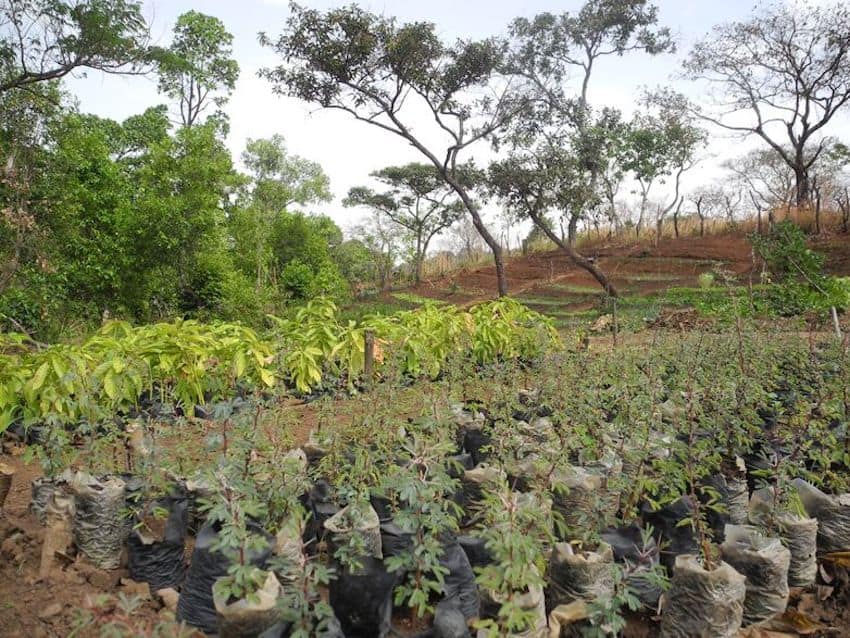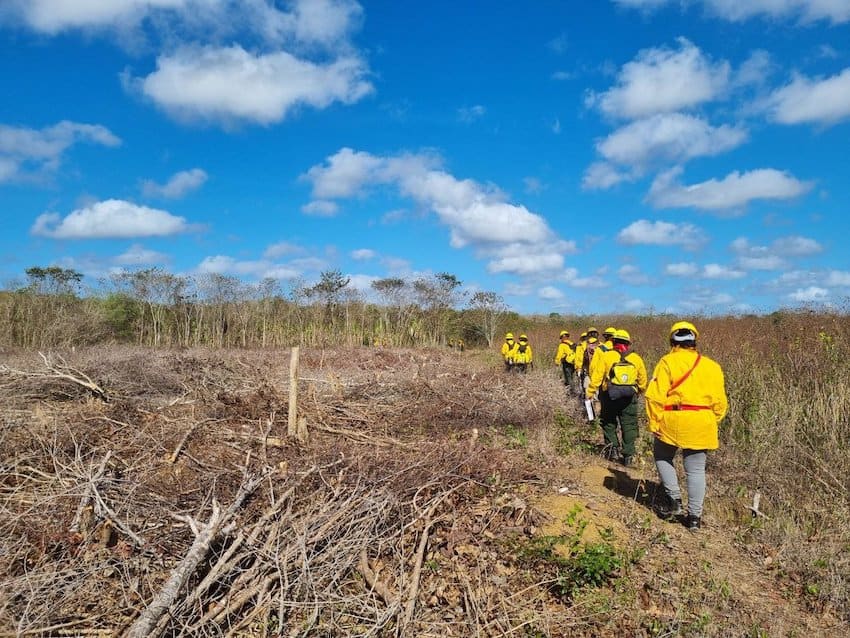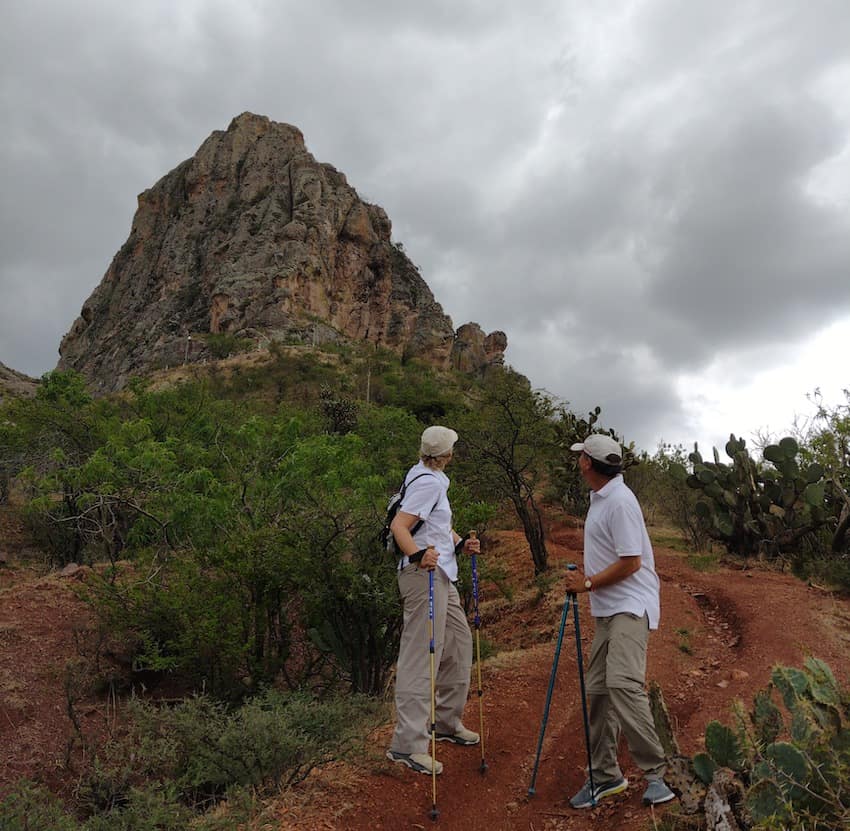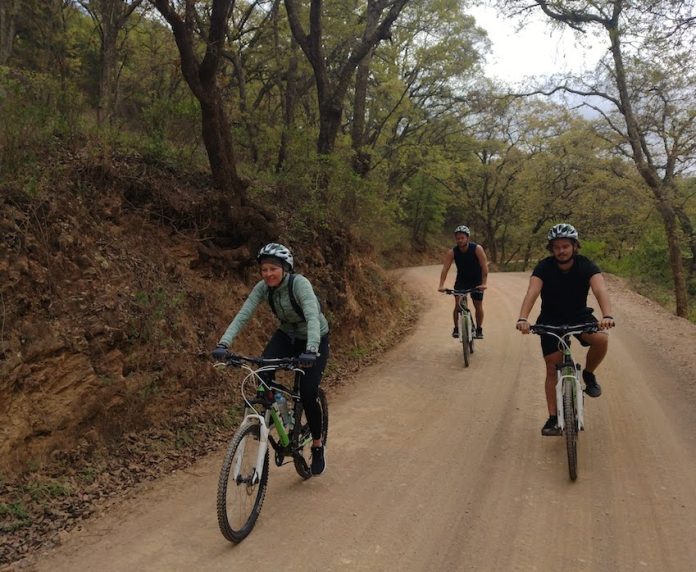Like most of central and northern Mexico, one of Guanajuato state’s major issues looking ahead to the future is water.
According to a 2021 article in El Sol de Irapuato, 19 of the state’s 20 aquifers are currently over-exploited and lack the water necessary to supply Guanajuato’s cities and local agriculture. According to the nonprofit Reforestamos México, the forests of Guanajuato, which filter 72% of all water consumed in the state, have been reduced by 12% in the last 20 years. That’s why, one year ago this month, Reforestamos México teamed up with Guanajuato’s Environment and Land Management Ministry (SMAOT) as well as the Guanajuato Tourism Ministry (Sectur) and the German sustainable development company GIZ to develop Proyecto Emblema.

The Emblema project is asking local tourism companies to support the restoration and rejuvenation of 20 hectares in the center of the state, called the Cuenca de la Soledad. This land, which SMAOT describes as a sub-basin of the Guanajuato River, is just a tiny part of a more expansive natural corridor that Reforestamos México has identified as environmentally critical for fighting the effects of climate change in this part of Mexico.
For the past 21 years, Reforestamos México has worked to protect and restore Mexico’s forests, with projects in Chiapas, Coahuila, Puebla and other states across the country.
“In the end, lack of water will greatly affect tourism,” says Mariel Mogul of Reforestamos México in regard to teaming up with Sectur’s sustainability arm, which works to promote projects to make the tourist industry more resilient to climate change.
“The main benefit of the program is for their businesses, so that tourism [in the state] won’t be negatively affected by climate change. Through this program we can combat some of those effects and in this way reduce the future risk.”

The Cuenca de la Soledad is located on communally owned land, the Mesa Cuata ejido, and is one of the key reservoirs that supply water to the state. The area was selected after an on-the-ground assessment and talks with the community to get their buy-in in developing the project. Emblema’s main goal is soil conservation to allow rain to more efficiently filter in the ground, refilling the many mini-reservoirs that in turn feed the Cuenca de la Soledad. That work includes planting native trees, terracing land, building rock retention walls and implementing other techniques to reduce erosion and improve the filtration of rainwater into the soil.
The project as a whole will cost 500,000 pesos and the nonprofit says that it will provide jobs for local communities, who will be hired for the majority of the work. The alliance of Reforestamos México, the state government and GIZ is asking the private sector — specifically the tourism sector — to donate to the project fund in order to reach its operational goal of 500,000 pesos. Restaurants, tour agencies and even party planning companies have all already made small donations towards the project since it began in August of 2022.
“Why would I send one, ten, or 20,000 pesos to the Sierra Gorda, South Korea, or China when my own natural areas are disappearing?” asks Raul Jaramillo, owner of a bike tour company in Guanajuato. Jaramillo has donated to the project as the president of the organization Nature and Adventure Tourism of Guanajuato A.C. (ATNAG).
By donating funds towards the project companies are supporting ongoing efforts by the state Tourism Ministry to encourage sustainable tourism in Guanajuato. Companies also receive a tax-deductible receipt for their donation and official recognition from both the state government and Reforestamos Mexico for their participation.

The fact that Reforestamos México is working alongside community members to involve them in these projects and hiring community members to perform the work, means the project will have a two-fold benefit, says Mogul. In addition to improving the local ecosystem, the project is as well as providing jobs in a low-income rural area.
“With our work we hope that we can keep people in communities from having to migrate into cities for work,” she says.
So far 100,000 pesos of the 500,000-peso goal have been raised. Preliminary steps like soil preparation have started, with five community members currently employed on this phase of the project. As temperatures rise across the Americas, many are facing the threat of water scarcity. With projects like these, tourism companies in Guanajuato state hope to fend off some of the more dramatic effects of climate change in their region and ensure tourism for years to come.
Lydia Carey is a freelance writer and translator based out of Mexico City. She has been published widely both online and in print, writing about Mexico for over a decade. She lives a double life as a local tour guide and is the author of Mexico City Streets: La Roma. Follow her urban adventures on Instagram and see more of her work at www.mexicocitystreets.com
